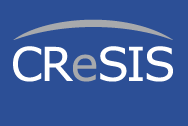Summer Teacher Workshop at KU
The Heat is On! Confronting Climate Change in the Classroom
Schedule/Syllabus
(tentative)November 1, 2008: Applications open. They will be accepted until January 15, 2009 and evaluated on a rolling basis until the course is full.
January 24, 2009: Orientation Day - On campus
Morning:
- Introduction to CReSIS
- Team Building Exercises
- Course expectations/syllabus/Teacher lesson presentation
Afternoon: In a computer lab on campus
- Intro to Moodle (videos, chats, discussion boards, etc…)
- Intro to Wikis
- Using Excel for Graphing
Jan 26 – Feb 8: Introduction to Climate Change
Video: Dr. Richard Alley
Objectives:
-Fundamentals of climate change
-Distinction between weather and climate
-Sea level rise contributors past and future, including polar ice sheets
Feb 9 – Feb 22: Energy Balance and Circulation Systems
Video: Mitch Oswald
Objectives:
-Describe the Earth’s radiation balance.
-Describe how energy is transferred through the atmosphere and oceans
-Describe the thermohaline circulation
-Describe feedbacks in the earth’s system (ice/albedo, etc)
Feb 23 – Mar 8: Ice Sheets and Glaciers
Video: Dr. Kees van der Veen
Objectives:
-Describe the formation of the polar ice sheets and glaciation cycles
-What questions do we still have about the ice sheets
-Describe the trends in mountain glaciers and how this can impact society (water resources, energy supply, floods)
Mar 9 – Mar 22: Sea Ice
Video: Dr. Vicky Lytle
Objectives:
-Interaction of sea ice with the climate system
-Sea Ice projections and uncertainties
-Sensitivity of Sea Ice – Canary in the Coal mine, tipping point.
-Remote Sensing of Sea Ice
-Describe the relationship between sea ice and the thermohaline circulation.
Mar 23 – Apr 5: Ice Cores and Climate
Video: Dr. Lonnie Thompson
Objectives:
-How ice cores are drilled and stored
-What information can ice cores tell us and what do they say
-What are some uncertainties with ice cores
-Climate change in the past/paleoclimate
Apr 6 – Apr 19: Understanding and Using Climate Data
Objectives:
- Be able to locate/download climate/cryospheric data
- Participate in an inquiry project using climate data (so they can better use inquiry in their classroom)
- Research a question about climate change or the cryosphere using data found online.
- Create a Poster in Powerpoint/word describing your findings
- Post Poster in Moodle and Comment on other poster
Apr 20 – May 3: Global Climate Models
Video: Dr. Johan Feddema
Objectives:
- Describe how the models work and their purpose
- Assumptions and uncertainties the climate models
- What are some model projections – when do they agree, when do they disagree.
May 4 – May 17: Global Impacts: Sea Level Rise and Fresh water distribution
Objectives:- Understand how Ice volume and sea level are related.
- Understand how coastal communities become vulnerable to increased storm surges and other threats
- Understand how melting glaciers and ice packs impact fresh water supplies
May 18 – May 31: Regional and Local Impacts of Climate Change
Video: Dr. Nathan Brunsell
Objectives:
-Potential Impacts of climate change in Kansas/Midwest/North America
-Energy outlook for Kansas (wind, coal, solar, water)
-What may be some local biosphere impacts?
-Local changes in climate extremes (number of tornadoes, rainfall….?)
June 1 – June 8: Motivating students to Action: Resources for Greener Schools
Objectives:
- Understand what actions can be taken in and around the school to reduce its environmental impact.
- Accumulate strategies for motivating and facilitating student action
June 9-10: Final project presentations at CReSIS


